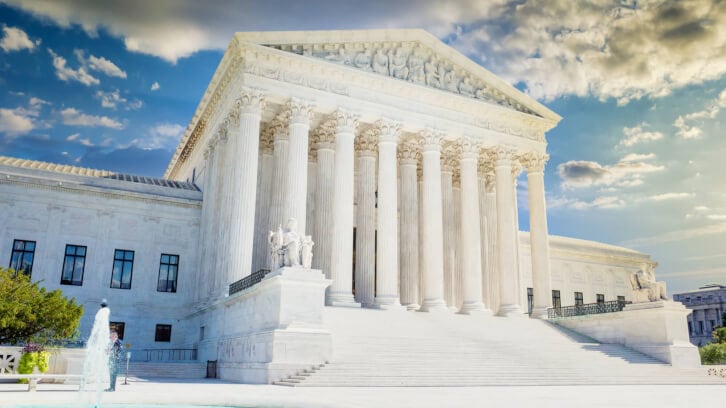The list includes claims related to all the vitamins, many minerals, fiber, omega-3 fatty acids and botanicals such as ashwagandha, chamomile, cranberry, elderberry, garlic, ginger, turmeric and many more.
At the center of the issue is the 1997 Food and Drug Administration Modernization Act (FDAMA), which allowed health or nutrient claims on foods if “a U.S. governmental scientific body with public health protection or research responsibility directly relating to human nutrition or the National Academy of Sciences has published an authoritative statement, currently in effect, about the relationship to which the health claim refers or that identifies the nutrient level to which the nutrient claim refers”.
The FDAMA added that the claim must accurately represent the authoritative statement and must be easily understandable by the public.
In 1998, the FDA issued guidance outlining its interpretation of what constitutes an “authoritative statement” and required that health claims meet the Significant Scientific Agreement (SSA) standard. The guidance noted that, “Not all pronouncements by the designated scientific bodies would meet these criteria.”
This guidance is “at odds with the plain meaning of the statute’s terms,” according to the ANH petition, which was filed with industry partners Living Fuel International, Health Ranger Store, Inc., Sanacor International, Inc. and Evolution Nutraceuticals, Inc. dba Cardio Miracle.
“The agency’s interpretation contradicts the statute which exempts health claims based on authoritative statements from SSA review in advance of market entry and permits continuous use of the claim in the market until such time, if ever, when the Secretary promulgates a rule following notice and comment rulemaking that modifies or revokes the claim or a federal court in an enforcement action acts against the claim,” the petition stated.
The end of the Chevron deference
Administrative agencies enjoyed deference in the interpretation of statutes under the 40-year-old Chevron deference (Chevron U.S.A. Inc. v. Nat. Res. Def. Council, Inc.), but the U.S. Supreme Court decided on June 28, 2024 that it is the courts, and not federal agencies, that are best positioned to interpret ambiguity in the statute, even in areas where the agencies are the experts (Loper Bright Enterprises v. Raimondo).
ANH states that the fall of Chevron now makes FDA’s interpretation in its 1998 guidance vulnerable.
“For more than a quarter-century, the FDA has acted in open defiance of Congress, blocking the very health claims lawmakers required it to allow,” stated Jonathan Emord, Esq., ANH general counsel, in a press release.
“With Chevron deference now gone, FDA must implement fully the FDAMA exception to FDA’s significant scientific agreement prior restraint on speech. This petition is about restoring the rule of law, ending unlawful censorship and opening the nutrient marketplace to truthful, science-based disease risk reduction information as never before. It will improve health, increase longevity and save lives.”
Foods and dietary supplements
According to the FDA’s website, the FDAMA only applied to conventional foods and not to dietary supplements, but ANH states in its petition that the Act defines “food” as including not only foods in common form but also dietary supplements. The FDAMA did not amend that definition and must therefore be read in harmony with it.
“That is how FDA originally interpreted the section from 1999 until 2024 whereupon it did a volte face and deviated from the statute, announcing that it would henceforth only allow authoritative statements to be filed for foods in common form,” ANH told NutraIngredients.
“In the advent of Loper Bright Enterprises v. Raimondo, that deviation from the statute is invalid. Moreover, not only does the law on its face include dietary supplements within the meaning of the term “food,” the legislative intent underlying the FDAMA authoritative statement provision makes clear that Congress meant by it to end FDA censorship as had occurred in the context of a dietary supplement claim (the folic acid/neural tube defect claim) held unconstitutional in Pearson v. Shalala."
ANH added that the Agency’s volte face in 2024 is anachronistic in a post-Loper Bright world, stating that FDA cannot interpret its enabling statute contrary to its plain and intended meaning, nor can the courts defer to such an interpretation.
Layered on top of this is President Trump’s Memorandum on April 9, 2025 directing federal agencies to implement Loper Bright by removing regulations that conflict with it Presidential.
“Under that executive command, FDA cannot maintain its 2024 position but must allow supplement claims under FDAMA’s authoritative statement provision,” ANH said.
Access to truthful, science-based information
Loren Israelsen, founder and president of the United Natural Products Alliance (UNPA), said his organization supports ANH’s new action.
“UNPA is well familiar with ANH and its long and distinguished history of challenging FDA’s regulations and policies that undermine public access and information about natural health products,” he said. “This new petition is well timed given the current political dynamics, leadership changes at FDA and the legal precedent of the Loper-Bright case that levels the judicial playing field (no judicial deference to government agencies).
“At 30+ years post DSHEA, the age of structure function claims is in need of modernization to keep pace with technology and the public’s desire for more specific and GOVERNMENT RECOGNIZED health claims for dietary supplements.”
The Council for Responsible Nutrition (CRN) said it believes consumers are best served when they have access to as much truthful, science-based information as the law permits to guide their health decisions.
“It is important that federal agencies—whether FDA, FTC or others—apply the proper legal standards in evaluating scientific evidence, without adding unnecessary barriers beyond what Congress intended," a CRN spokesperson told NI. “Clear, accurate communication of credible health information empowers individuals to make informed choices that can improve their well-being.”




